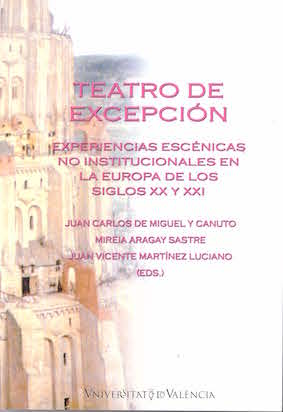Teatro Utile (Arte e Sviluppo)
DOI:
https://doi.org/10.7203/qf-elit.v19i0.5208 Abstract
Abstract
The project “Useful Theatre – (Art and Development)” - Teatro Utile (Arte e Sviluppo) - was created in order to promote drama that is multicultural, of value for the community and that is attentive to the changes our society is undergoing. It is a full-fledged theatre laboratory, promoted by the Accademia dei Filodrammatici di Milano, and is a unique example in Italy of a drama school that hosts within its structure a project dedicated to reflecting upon multi-ethnicity, in cooperation with two associations of the African Diaspora, namely Sunugal and Mascherenere. This project is articulated over a period of three years and has the objective of preparing a group of artists who will be capable of developing research, both on acting and dramaturgy, by examing and comparing different cultures. The participants include actors, musicians, playwrights and directors of various nationalities: artists of the African Diaspora, first and second generation foreigners and Italian artists.
Keywords: theatre; art; development; sharing; encounter.
 Downloads
Downloads
Downloads
Published
How to Cite
-
Abstract273
-
PDF (Español)186
Issue
Section
License
 Este obra está bajo una licencia de Creative Commons Reconocimiento-NoComercial-SinObraDerivada 4.0 Internacional.
Este obra está bajo una licencia de Creative Commons Reconocimiento-NoComercial-SinObraDerivada 4.0 Internacional.
Authors who publish with this journal agree to the following terms:
- Authors retain copyright and grant the journal right of first publication with the work simultaneously licensed under a Creative Commons Attribution License that allows others to share the work with an acknowledgement of the work's authorship and initial publication in this journal.
- Authors are able to enter into separate, additional contractual arrangements for the non-exclusive distribution of the journal's published version of the work (e.g., post it to an institutional repository or publish it in a book), with an acknowledgement of its initial publication in this journal.
- Authors are permitted and encouraged to post their work online (e.g., in institutional repositories or on their website) prior to and during the submission process, as it can lead to productive exchanges, as well as earlier and greater citation of published work (See The Effect of Open Access).




